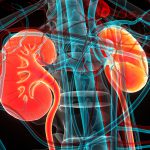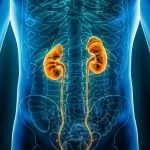The holidays can be stressful, whether its finding the best gift, setting the perfect table or hosting a great party. Stress can contribute to or worsen hypertension, or high blood pressure, which according to the American Heart Association affects half of the adults in the U.S., yet many are unaware of this “silent killer.”
The potential consequences of uncontrolled blood pressure can be catastrophic, including stroke, heart disease and kidney disease. Most patients have no signs or symptoms of high blood pressure, but a headache in the back of the head, dizziness and fatigue may all be signs of hypertension.
Below are some suggestions for keeping your blood pressure and overall health in check during this holiday season.
Eat
- – Avoid salt. Many holiday foods are a hidden source of salt. Limit your intake to 1,500 to 2,000 mg per day.
- – Reduce sweets to fight the “sugar crash.”
- – Use moderation and avoid overindulging in desserts and appetizers. Be sure to maintain an adequate intake of healthy fruits, vegetables and proteins.
Drink
- – Limit alcohol use. Women with high blood pressure should have no more than one drink per day and men should limit drinks to two per day.
- – Limit caffeine. As enticing as the latest holiday coffee drinks are, caffeine can elevate blood pressure.
- – Stay hydrated by drinking six to eight 8-oz. glasses of water each day.
Sleep
- – Get six to eight hours of sleep per night.
- – Avoid all forms of screen time one hour before bed.
- – Talk to a health care provider about suspected sleeping disorders. Diseases such as sleep apnea interfere with the body’s ability to maintain normal blood pressure levels.
In the era of social media, it is easy to unknowingly impose unattainable goals for holiday gatherings, setting the stage for a false sense of failure and high stress levels and blood pressure. Stay calm, limit external pressures and focus on maintaining realistic expectations and healthy habits.
Contact a health care provider for an evaluation if high blood pressure is a concern or if blood pressure is not controlled. Visit the emergency room if symptoms of dizziness, severe headache or weakness arise.
About the Author:
Hammond joined the Pitt SHRS faculty as an assistant professor in the Physician Assistant Studies program in 2018. Her clinical experience is in neurosurgery, primary care and pulmonology, and she is currently practicing sleep medicine.









